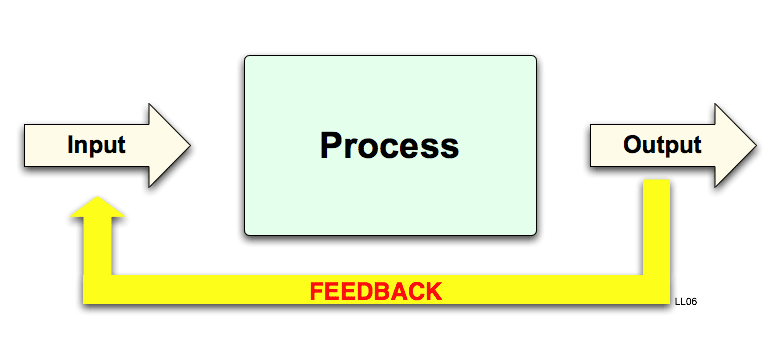Feedback is information provided by an agent regarding aspects of one’s performance or understanding. It is a reaction to a learner’s action that aims to engage, inform, and increase knowledge by reducing discrepancies between current understanding and performance and a goal.
Definitions of Feedback
Kaufman (1972): Feedback is “information about the effects of one’s own behavior.”
Ilgen et al. (1979): Feedback is “information about the quality of one’s performance.”
Kluger and DeNisi (1996): Feedback is “information about the discrepancy between a person’s current performance and some standard.”
Sadler (1989): Feedback is “information about the extent to which one’s performance matches a standard.”
Van Velsor and Leslie (1995): Feedback is “information about the quality of one’s performance and the factors that contribute to it.”
Instant feedback is when information is provided contextually and on-demand, in immediate response to a learner’s action and in the flow of learning. It helps deepen a learner’s understanding by correcting mistakes, affirming competence, or debunking misconceptions on the topic.

Importance of Feedback in communication
Feedback is important in communication for several reasons:
1. Feedback improves understanding:
When feedback is provided, it helps the sender of the message understand how their message is being received and interpreted by the receiver. This allows for clarification and adjustment if needed, leading to better understanding between the parties involved.
2. Feedback increases motivation:
Positive feedback can be a powerful motivator. When individuals receive recognition and praise for their efforts, it boosts their confidence and encourages them to continue performing at a high level. On the other hand, negative feedback can also be motivating as it highlights areas for improvement and encourages individuals to strive for better results.
3. Feedback enhances performance:
Constructive feedback provides individuals with specific information on how they can improve their performance. It helps identify strengths and weaknesses, allowing individuals to focus on areas that need development. By addressing these areas, performance can be enhanced and goals can be achieved more effectively.
4. Feedback improves relationships:
Effective feedback fosters open and honest communication between individuals. It encourages dialogue, trust, and mutual respect. When individuals feel comfortable giving and receiving feedback, it strengthens relationships and promotes a positive and collaborative work environment.
Types of Feedback
There are different types of feedback that can be given in communication:
1. Positive feedback
Positive feedback acknowledges and reinforces good performance or behavior. It focuses on strengths and highlights what is being done well. Positive feedback boosts morale and encourages individuals to continue their positive actions.
2. Negative feedback
Negative feedback addresses areas for improvement or behavior that needs to be corrected. It points out mistakes or shortcomings and provides suggestions for improvement. Negative feedback, when given constructively, helps individuals learn from their mistakes and grow professionally.
3. Constructive feedback
Constructive feedback is a combination of positive and negative feedback. It provides a balanced approach by recognizing strengths while also addressing areas for improvement. Constructive feedback is specific, actionable, and focuses on growth and development.
Advantage of Feedback
Benefits of feedback in communication include:
1. Improved understanding: Feedback helps clarify messages and ensures that the intended meaning is accurately received by the receiver. It reduces misunderstandings and promotes effective communication.
2. Increased motivation: Feedback, especially positive feedback, boosts motivation and encourages individuals to continue performing at their best. It provides recognition and reinforcement for good work.
3. Enhanced performance: Feedback highlights areas for improvement and provides individuals with specific information on how to enhance their performance. It helps individuals set goals and work towards achieving them.
4. Improved relationships: Effective feedback fosters open and honest communication, which strengthens relationships. It builds trust and promotes a positive work environment.
Effective Feedback Tips
To give feedback effectively, consider the following tips:
1. Be specific: Provide specific examples and details when giving feedback. This helps the receiver understand exactly what they did well or what needs improvement.
2. Be timely: Give feedback as close to the event or behavior as possible. Timely feedback allows the receiver to connect it with their actions and make immediate adjustments if needed.
3. Be respectful: Deliver feedback in a respectful and constructive manner. Use a supportive tone and focus on the behavior or performance, not the individual.
4. Be open to feedback yourself: Feedback is a two-way process. Be open to receiving feedback from others and demonstrate a willingness to learn and grow.
My Perspective
Feedback plays a crucial role in communication. It improves understanding, increases motivation, enhances performance, and strengthens relationships. To give feedback effectively, be specific, timely, respectful, and open to feedback yourself.
So, by incorporating feedback into communication, individuals and organizations can achieve better results and foster a positive and collaborative environment.
Was this helpful?
0 / 0
Every business faces its unique set of challenges, and we believe we’ve found something that can make a difference for yours. Our system integrates and streamlines complex processes seamlessly.
Could we schedule a brief call to discuss how it could address your specific needs?
I saw your google, its not, well its not right. Like where google show customers about your business. I don’t want to impose, but there are a couple things that are just not right, may I tell you what they are?
Hi, I noticed a few things wrong with your Google listing, is this a good place to send the problems?
Thank you! Please share your insights
Hey, I noticed your website isn’t using AI yet, can I send over something that I think would help?
Ok, mail me
Hi,
I am getting in touch to present a valuable guest post offer for your website which will help boosting your traffic as well as build links. You will just have to publish it on your site with my backlink.
Interested in working together on this? If yes, I’ll send you the topics.
Looking forward to hearing from you.
Best,
Kristel
Sure, send me im waiting…